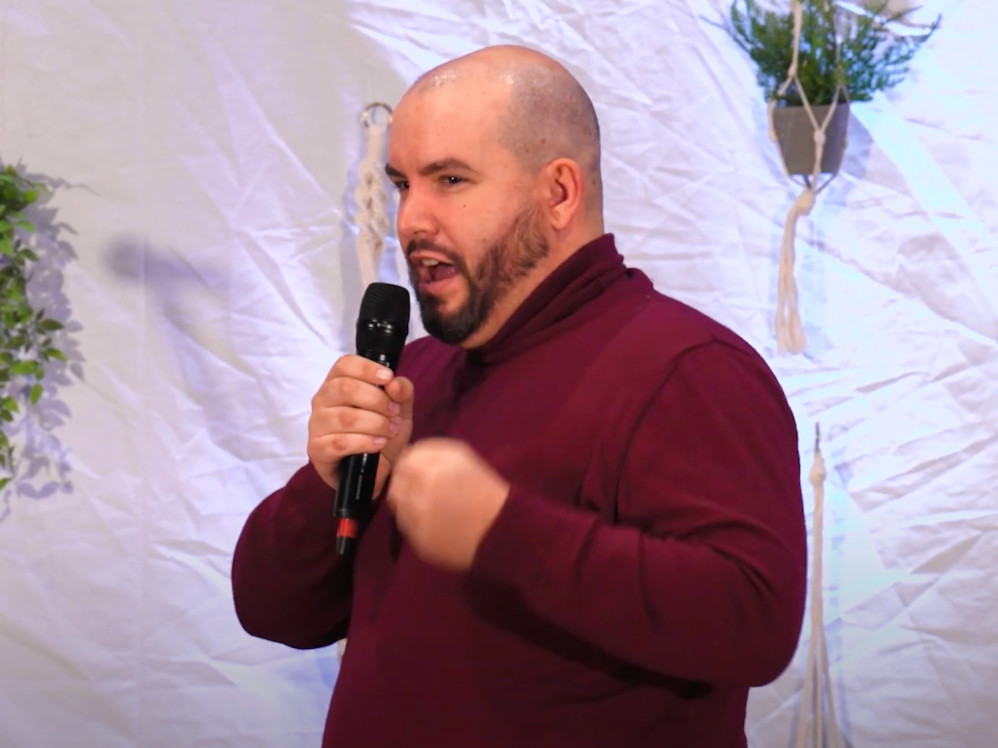David Bennett, whose journey from gay student activist to a celibate follower of Jesus is chronicled in his book A War of Loves, has called on the conservative Anglican movement Gafcon (Global Anglican Futures Conference) to dissociate itself from new Ugandan laws that increase jail sentences and introduce the death penalty for homosexuality.
Side B is a term used by same-sex attracted Christians who follow historic Christian teaching to be celibate. Bennett describes their difficulty of being between progressive Christians who wish to affirm active sexuality relationships in the LGBTQIA space and some conservative Christians who support civil punishment for homosexuality. Bennett grew up in Sydney and saw both the Sydney Anglicans and C3 Church as key to his journey,
Against this background, a passage in the Kigali Commitment – a statement issued at the end of the Gafcon conference – can be read as critical of the Ugandan action. “We affirm that every person is loved by God and we are determined to love as God loves. As Resolution I.10 affirms, we oppose the vilification or demeaning of any person including those who do not follow God’s ways, since all human beings are created in God’s image.”
As one senior Gafcon leader described it to me – it puts tension between the position of the Gafcon conference and the Church of Uganda delegates who supported the law.
This tension became explicit when the Church of Uganda expressed its “gratitude” for the new law after the President signed it.
Bennett made it clear each church that is part of Gafcon should take a stand against the Ugandan laws – referencing ACNA, the Anglican Church of North America.
The Anglosphere delegates to Gafcon from places like Australia, the UK and the US do not support the Ugandan laws. Instead, they would follow the thinking of Kirsten Birkett’s piece for the Church Society, “Don’t criminalise gay people”. (Birkett, now based in England, is a product of the Sydney Diocese). Leading evangelicals at Kigali echoed this. The Editor-in-Chief of Christianity Today, Russell Moore, also condemned the laws in a column Don’t Pretend the Ugandan Homosexuality Law Is Christian.
“In writing to the church in Corinth, the apostle Paul rebuked an example of sexual immorality explicitly mentioned in the text of Leviticus 20—having sex with the wife of a family member. Paul also quoted, “Purge the evil person from among you” (1 Cor. 5:13, ESV) —a text that was used in the Old Testament civil law to denote the death penalty (Deut. 13:5; 17:7; 22:21).
“Yet Paul did not use this language to call for any criminal penalty by the state—and certainly not execution. Instead, he saw the “you” of the new covenant as applying to the church, not to the state. And the church is not given the power of the sword (Matt. 26:52; Rom. 13:1–7; 2 Cor. 10:4).
“Moreover, Paul specifically notes in his letter that the church does not have judgment over outsiders. The local church should remove a sexually immoral person—if finally unrepentant—from membership in their community, but this does not mean they should stop associating with those who do the same things on the outside: “What business is it of mine to judge those outside the church? Are you not to judge those inside?” (1 Cor. 5:12).”
Comment: Gafcon and conservative Christians should hear what David Bennett is saying. Church Society could helpfully point readers to Birkett’s article. And commentary like Russell Moore, a Baptist, should be made by Anglicans too. The Other Cheek has offered Gafcon Australia an opportunity to comment on the Ugandan laws.
Image: Screenshot of David Bennett speaking at Holy Trinity Cambridge


Beach is either being disingenuous or ignorant of the history leading up this legislation. I suspect his cultural sensitivity is tailored to fit dogma — if Christians were the target of this legislation, then his attitude would be entirely different. #ACNAtoo
The death penalty is for aggravated rape of children as I understand it. The legislation aims to protect culture and has penalties for those promoting it. Biden was quick to condemn and stop US Aid but the US provides arms to Saudi Arabia where death for homosexuality isn’t done judicially
The Anti Homosexuality Act section 3 defines an offence of “Aggravated Homosexuality” for which convicted persons are “liable” to “suffer death. Aggravated Homosuality as defined in the Act includes sex with a child, relative, a person of advanced age. And if the the person found guilty is a serial offender. You can read the Act here https://www.parliament.go.ug/sites/default/files/The%20Anti-Homosexuality%20Act%2C%202023.pdf
You make a good point about US foreign policy
What do you mean by “protect culture” in this case? And yes, US foreign policy is often flagrantly hypocritical as is that of GAFCON, it seems.